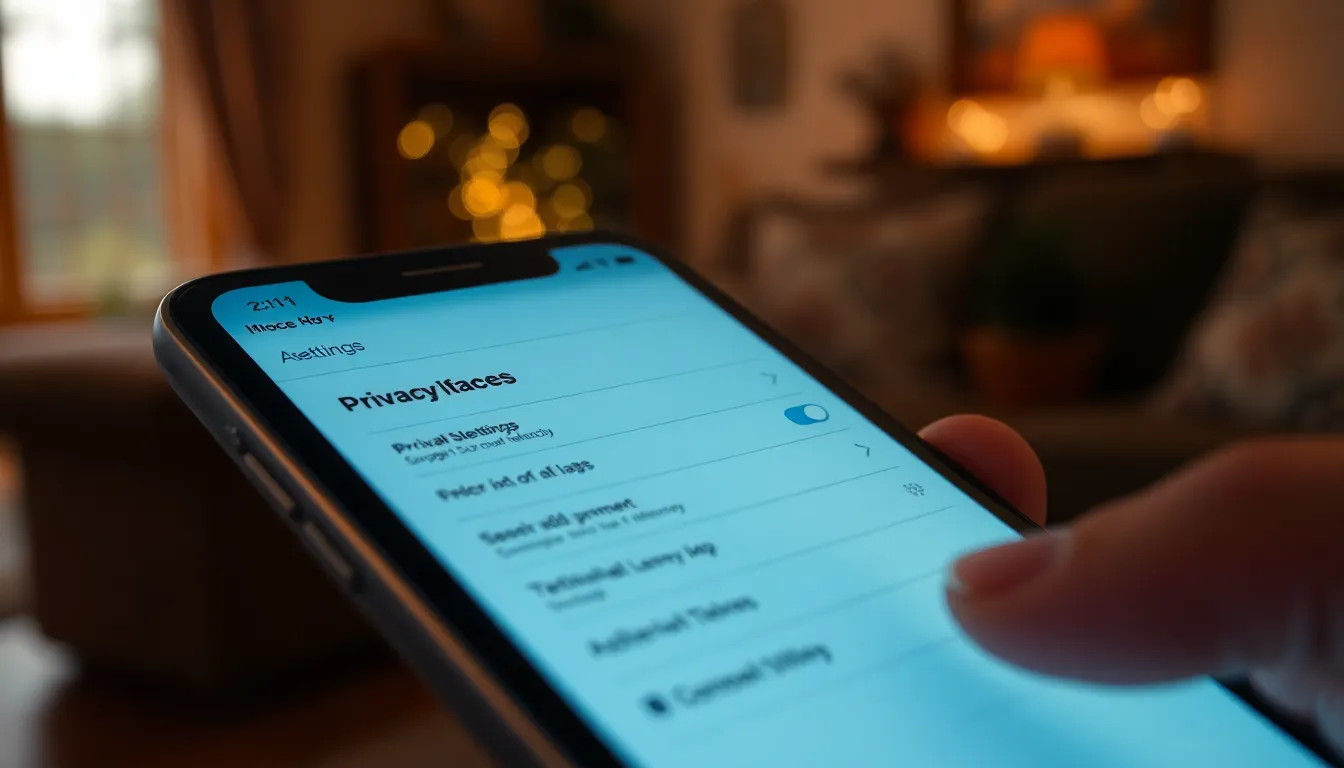In today’s digital landscape, privacy in apps has become a pressing concern for users worldwide. As smartphones and applications permeate daily life, the amount of personal data shared is staggering. From location tracking to contact lists, users often unknowingly expose sensitive information, raising questions about data security and user rights.
With countless apps vying for attention, understanding privacy policies and the implications of data sharing is crucial. Users must navigate a complex web of permissions and potential risks, making informed choices about which apps to trust. This article delves into the importance of app privacy, the common pitfalls users face, and practical tips for safeguarding personal information in an increasingly interconnected world.
Table of Contents
ToggleUnderstanding Privacy In Apps
Privacy in apps refers to how user data is collected, used, and protected by mobile applications. Understanding privacy implications is essential for users who want to manage their personal information effectively.
Definition Of Privacy In Apps
Privacy in apps encompasses the ways in which applications handle personal data. This includes the types of data collected, storage practices, and sharing with third parties. Users often encounter risks through insufficient data protection, unauthorized access, or misuse of their information. Awareness of privacy settings and permissions is vital for controlling personal data.
Importance Of Privacy In The Digital Age
Privacy plays a crucial role in the digital age as individuals rely heavily on mobile applications for daily activities. Safeguarding personal information builds trust between users and app developers. With major data breaches reported frequently, protecting sensitive data, such as location or financial information, is essential. Enhanced privacy measures also empower users to experience safer interactions within the digital ecosystem.
Common Privacy Concerns

Privacy concerns in applications stem from various factors, particularly regarding how user data is handled. Understanding these issues helps users make informed choices about the applications they use.
Data Collection And Usage
Many apps collect extensive data, including personal details, location history, and usage patterns. This data often serves purposes such as targeted advertising, user experience optimization, and analytics. Users frequently face risks if this data is mishandled or shared with third parties. Notably, apps that track user location can reveal sensitive information about daily routines and habits. Users must scrutinize apps for specific data collection practices, staying alert to those that request unnecessary permissions.
User Consent And Transparency
User consent is a fundamental aspect of app privacy. Apps typically require users to agree to privacy policies before use, yet these documents often contain complex language, making them difficult to understand. Transparency about how user data is collected, used, and shared remains essential. Clear communication from app developers about data practices fosters trust and allows users to make informed decisions. Users should actively seek out apps that prioritize transparency, providing straightforward explanations of data usage and allowing easy access to privacy settings.
Best Practices For App Developers
App developers play a crucial role in safeguarding user privacy. By implementing best practices, they can enhance data protection and foster user trust.
Implementing Strong Privacy Policies
Developers must create clear and comprehensive privacy policies. Strong policies inform users about data collection practices, usage, sharing, and retention. They should explain how user data is protected and the rights users have regarding their information. Specific examples of policies can include:
- Clear Language: Use simple, non-legalistic language.
- Transparency: Disclose all data collection methods and purposes.
- User Rights: Outline options for users to manage their data.
- Updates: Regularly revise policies to reflect changes in data practices.
Adhering to these guidelines helps users make informed choices and enhances app credibility.
Regular Privacy Audits
Conducting regular privacy audits is essential for maintaining data security. Audits help identify vulnerabilities and ensure compliance with established policies. Key components of privacy audits include:
- Data Mapping: Track where user data resides and how it flows through the system.
- Vulnerability Assessments: Identify and address gaps in data security.
- Compliance Checks: Verify adherence to relevant regulations, such as GDPR or CCPA.
- User Feedback: Collect user insights to improve data practices continually.
Through ongoing audits, developers can adapt to emerging threats and strengthen privacy measures, ultimately enhancing user trust.
Protecting User Privacy As Consumers
User privacy protection is essential as app usage continues to rise. Understanding how to manage permissions and privacy settings equips consumers with the tools for safer digital interactions.
Reviewing App Permissions
Reviewing app permissions helps users understand what data apps access. Users should regularly check the permissions each app requests, as some may not relate to its primary function.
- Location Access: Avoid granting access to location data for apps that don’t require it, such as games or tools.
- Contacts: Limit access to contacts only for messaging or social media apps.
- Camera and Microphone: Restrict camera and microphone permissions to applications that need them for essential functions, like video calls or photo applications.
By critically evaluating these permissions, users can minimize unnecessary data exposure.
Utilizing Privacy Settings
Utilizing privacy settings enables users to tailor their information sharing. Many apps offer varied privacy controls, often found in the settings menu.
- Account Privacy: Adjust privacy settings to enhance account security, such as making profiles private or limiting who can see content.
- Data Collection: Disable data collection options that don’t enhance user experience, such as analytics or advertising preferences.
- Two-Factor Authentication: Activate two-factor authentication where possible, adding an extra layer of security to accounts.
These steps can significantly bolster personal privacy and reduce data vulnerabilities within applications.
Legal Framework And Regulations
Understanding the legal framework governing app privacy is crucial for both users and developers. Regulations like the GDPR and CCPA set standards for data protection, compliance, and user rights.
GDPR And Its Impact
The General Data Protection Regulation (GDPR) represents a significant step in data privacy legislation. Enforced in May 2018, GDPR mandates strict guidelines for data collection and usage within the European Union. Key principles include:
- User consent: Apps must obtain explicit consent before processing personal data.
- Data minimization: Only necessary data should be collected from users.
- Transparency: Developers must disclose their data handling practices clearly.
- User rights: Users have the right to access, correct, and delete their data.
Non-compliance can lead to substantial penalties, amounting to up to 4% of a company’s annual global revenue. The impact of GDPR extends beyond Europe, prompting global companies to adopt improved data protection measures, enhancing user trust and reducing privacy violations.
CCPA And Other Regulations
The California Consumer Privacy Act (CCPA), effective since January 2020, sets specific regulations for data privacy in California. CCPA empowers users with rights such as:
- Right to know: Users can request information on the personal data collected by apps.
- Right to delete: Users can demand the deletion of their personal data, with some exceptions.
- Right to opt-out: Users can opt-out of the sale of their personal information.
CCPA influences businesses worldwide, as many companies catering to California residents comply with its standards. Other regions, including states like Virginia and Colorado, have enacted similar laws, reflecting a growing emphasis on user privacy across the United States. Collectively, these regulations promote more stringent privacy practices, elevating user protection in the digital landscape.
Prioritizing privacy in apps is essential in today’s digital landscape. Users must remain vigilant about how their data is collected and used. By understanding privacy policies and managing app permissions, individuals can take proactive steps to safeguard their personal information.
Developers also play a crucial role in fostering trust through transparency and responsible data practices. As regulations like GDPR and CCPA reshape the privacy landscape, both users and developers must adapt to ensure a safer digital experience. Embracing these principles not only protects users but also enhances the overall integrity of the app ecosystem.




